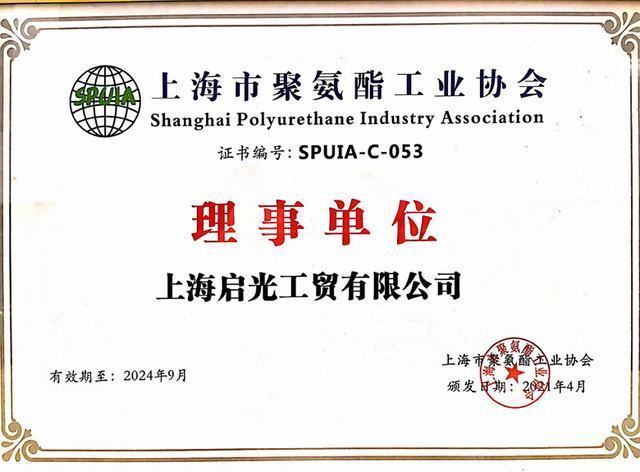Abstract
Polyurethane has serious degradation problems. After degradation of polyurethane products, it will have adverse effects on the environment and affect its development in all aspects. After research, it was found that polyurethane products based on bio-based raw materials have little impact on the environment after degradation and are green and environmentally friendly. This article reviews the research progress and current situation of starch-modified degradable polyurethane, and discusses three starch modification methods at home and abroad.
Keywords
Polyurethane
Bio-based degradable polyurethane modification
Introduction
The full name of polyurethane is polyurethane (PU), which is a material widely used in industrial production. At present, polyurethane materials occupy a crucial part in industrial production. Because of their good wear resistance, elasticity, viscosity and other characteristics, they are widely used in food processing, clothing and apparel, construction engineering, national defense engineering, etc. field. The raw materials of traditional polyurethane materials are non-renewable energy, and polyurethane materials have the characteristics of high relative molecular weight and high chemical bond energy. They are difficult to degrade and cause great harm to the environment. Long-term landfilling or incineration will cause irreversible effects on the natural environment. . Therefore, research on polyurethane materials that are easily degradable and environmentally friendly is an inevitable trend in the development of green materials.


1 Experiment
1 Research progress on starch-modified degradable polyurethane
Among the various types of degradable polyurethane synthesis, bio-based raw materials are the most accessible and have minimal impact on the environment and subsequent consequences. Among them, starch-modified polyurethane is simple to operate and easy to prepare. The preparation is mostly based on blending modification, on which the starch is modified by chemical or physical methods. Starch and its derivatives are a cheap and abundant renewable resource. They are used to synthesize modified polymers, which can give the polymer new characteristics and are in line with environmental protection and sustainable resource development and utilization strategies. Therefore, starch is one of the most promising raw materials for biodegradable polyurethane.
Polyurethane and bio-based starch have certain miscibility. CAO et al. mixed polyester diol (PEPA), toluene diisocyanate (TDI), dimethylol propionic acid (DMPA) and other raw materials to obtain two groups of water-based polyurethanes with different NCO/OH substance ratios; then the synthesized Each group of water-based polyurethane is added to the gelatinized starch and mixed evenly by physical means to obtain polyurethane/starch blends with different component proportions; each group of blends is desolvated and finally formed at 40°C. film, thereby obtaining polyurethane/starch blend films with different component ratios. Tensile and other performance tests were conducted on it. Research shows that the tensile strength of the blend is related to the microphase structure and starch content of water-based polyurethane. Mixing water-based polyurethane with starch not only reduces the regular structure of the polyurethane hard segments, but also reduces the The regularity of the soft segments is improved, so to a certain extent, water-based polyurethane and starch in different mixing ratios are miscible.
Bio-based starch can also prepare starch nanocrystals (StN) to enhance the performance of water-based polyurethane. CHEN et al. treated potato starch with sulfuric acid aqueous solution and transformed it under ultrasonic conditions to obtain starch nanocrystals (StN). Part of the product was uniformly dispersed and precipitated in water, and the other part was dispersed in MEK. Three methods were used to prepare modified polyurethane: ① Add StN aqueous dispersion to WPU emulsion; ② Add StN aqueous dispersion during the emulsification process; ③ DMPA and MEK-dispersed StN were added during the chain extension stage of the polyurethane prepolymer. The final research and testing showed that the properties of the first StN/WPU composite were improved to varying degrees compared with unmodified WPU.
Use natural ingredients extracted from plants: polyhydroxyl and isocyanate, and use both as reactants in the experiment to prepare polyurethane materials. Polyurethane materials prepared from polyols and isocyanates have high added value. This kind of polyurethane is widely used in the production of foam plastics and rubber, and has important application value in the fields of coatings, adhesives and packaging. The researchers said that during the research process, they discovered that polyurethane prepared from plant extracts isThe powdered milk is heated and gelatinized on the drum surface to form a thin layer, which is then gently scraped off with a knife. The screw extruder is a common experimental equipment in the extrusion and puffing method. The machine generates heat through continuous extrusion and friction; as the heat continues to accumulate, the temperature rises, causing the original starch to gelatinize, and then passes through the small hole at the upper end of the device. Spouting; Due to the difference in pressure between the inside and outside, the instantaneously decompressed starch expands rapidly to achieve the purpose of drying.
2. 2. 3 Enzyme modification method
The process of treating starch with different biological enzymes is a biological modification method. The production of α, β, γ-cyclodextrin, amylose, and maltodextrin is the result of different enzymes treating starch. At the same time, the same Using advanced enzyme treatment methods and physical methods, there is no pollution during the treatment process, and the obtained products are healthy and hygienic.
In recent years, the use of biological enzymes to modify starch has attracted more and more attention. Commonly used biological enzymes include α-amylase, β-amylase, glucoamylase, etc. Different enzymes have different effects on changing starch, and the treated starch also has different properties. However, starches modified by biological enzymes all have a common characteristic, which is good anti-aging properties and good rheological properties. At the same time, the conditions for bioenzyme treatment are relatively mild, and the products obtained are also green products. The starch foods obtained by biomodification are also easier to be absorbed by the human body.
The modified starch obtained by treating natural corn starch with α-amylase is used for surface sizing. Experiments show that the strength properties of paper can be greatly improved after sizing. Through thermal analysis, it can be concluded that the strength and rheological properties of corn starch after treatment have been greatly improved. However, the method of modifying starch with biological enzymes also has certain shortcomings. The high cost, low processing capacity, and difficulty of industrialization of biological enzymes are all areas that need to be overcome.
3 Conclusion
A series of water-soluble starches with various degrees of substitution can be prepared by modifying starch, thereby producing different starch-modified polyurethane materials. It improves the shortcomings of being difficult to degrade and the disposal of traditional products endangering environmental safety. The raw materials for making modified polyurethane are cheap and easier to obtain, and can be used in more fields to prepare environmentally friendly polyurethane materials. Although there are a variety of bio-based polyurethane modification methods, in-depth research is still needed to obtain a more environmentally friendly and simpler bio-based polyurethane modification method.